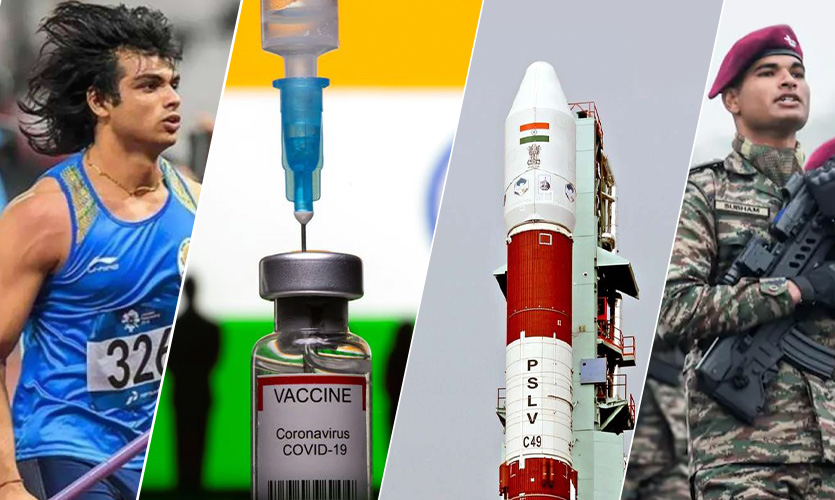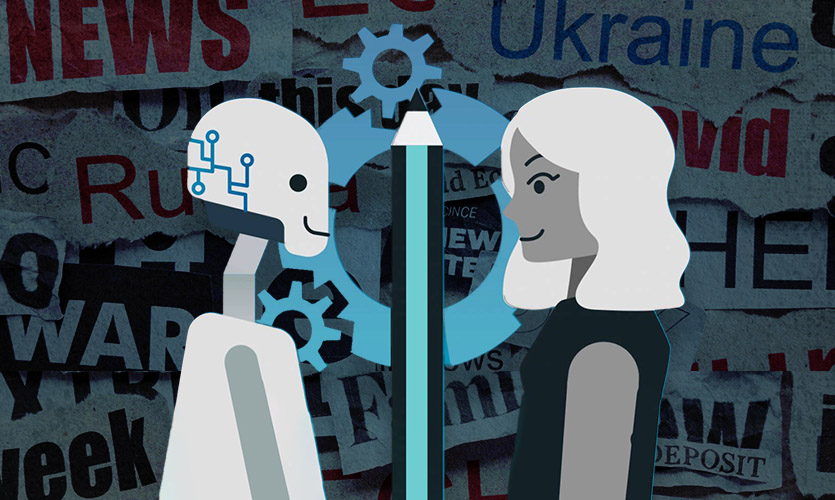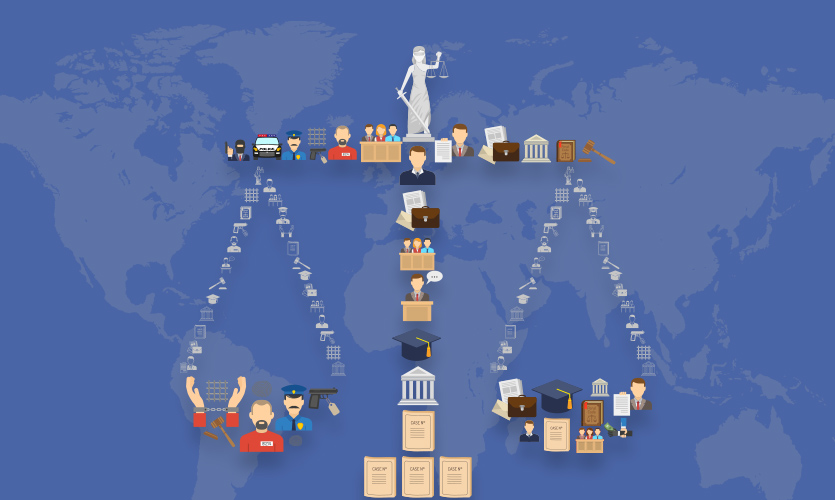“At the stroke of the midnight hour, when the world sleeps, India will awake to life and freedom,” said Jawaharlal Nehru, leader of the nationalist movement and India’s first prime minister, on the eve of India’s independence. The speech he delivered then, ‘A tryst with destiny’, is considered one of the greatest speeches of the 20th century.
Today marks India’s 75 years of India’s independence from the British Raj, While our leaders were building a nation, after they and the people of India fought the century-long struggle for freedom, we also managed to grow, and achieve prominence on the international stage.
What would a glimpse of the 75 most important milestones of independent India look like?
- August 15, 1947: India attained independence
This day marked the beginning of India as an independent nation, after a century of fighting for its freedom.
- 1949: Muthamma Belliappa became the first woman to pass the Indian Civil Services exam
Chonira Belliappa Muthamma joined the Indian Foreign Service in 1949, and went on to become India’s first woman IFS officer and ambassador.
- 1950: India became a Republic
On November 26, 1949, the Constituent Assembly adopted the Constitution of India. Less than a year later, on January 26, 1950, the constitution came into effect, declaring India a Republic state, a day that is now celebrated every year as Republic Day.
- 1951: India successfully hosted the first-ever Asian Games in New Delhi
- 1951: India’s first five-year plan was launched
The country’s first Prime Minister Jawaharlal Nehru presented the first five-year plan to the Parliament, which focused on the development of the primary sector, agriculture, and solving issues raised by the partition of the country.
- 1952: First Lok Sabha election
The first general election in India was held between 1951 and 1952. It was held in 68 phases, over four months. As 85 percent of the Indian population was illiterate at the time, the Election Commission printed symbols that would represent the political parties.
- 1953: Air India was nationalised, along with nine others
- 1954: India and China sign the Panchsheel Treaty
Panchsheel or the Five Principles of Peaceful Co-existence, was an agreement which was first formally enunciated in the Agreement on Trade and Intercourse between the Tibet region of India and China.
- 1955: India’s first computer HEC-2M was installed in Kolkata
- 1956: Asia’s first research reactor ‘APSARA’ was made operational in India
- 1959: Arati Saha became the first Asian woman to successfully cross the English Channel
- 1960: Milkha Singh shatters a new Olympic record
In 1960, during the Rome Olympics, Indian sprinter Milkha Singh set a new 400 m national record of 45.73 seconds. This became his identity for the upcoming decades, as his record remained intact until 1998, broken by Paramjeet Singh, who clocked 45.70 seconds.
- 1961: First meeting of Non-Aligned Countries under India’s leadership
The first conference of the Movement of the Non-Aligned Countries was convened by the leaders of India, Indonesia, Egypt, Syria and Yugoslavia in Belgrade. The movement began with 25 member states in 1961.
- 1961: Liberation of Goa
On December 17, 1961, “Operation Vijay” was carried out by the Republic of India, as part of which it annexed Estado da India, which consisted of Portuguese Indian territories including Goa, Daman, and Diu.
- 1963: India’s first ever rocket launch
India launched its first rocket from Thumba near Thiruvananthapuram, Kerala, on November 21, 1963. This launch marked the beginning of the Indian Space Programme.
- 1966: Reita Faria became the first Asian to win Miss World
- 1966: Indira Gandhi first the female Prime Minister of India
- 1968: Pandit Ravi Shankar became the first Indian to win a Grammy Award
- 1968: Dr Prafulla K Sen became the first surgeon in India and fourth in the world to perform a heart transplant surgery
- 1969: ISRO was founded
The Indian Space Research Organisation (ISRO) was formed in 1969, superseding the erstwhile Indian National Committee for Space Research (INCOSPAR) which was set up in 1962.
- 1971: India helped Bangladesh achieve independence from Pakistan
In 1971, India won the war against Pakistan, which led to the formation of Bangladesh, erstwhile East Pakistan. It was also the second largest military surrender since World War II, ending 23 years of Pakistani rule.
- 1974: India tested its first nuclear bomb successfully
The test was codenamed “Smiling Buddha”, which was tested in Pokhran, Rajasthan. This made India one of the only countries outside the five permanent members of the United Nations Security Council to successfully test a nuclear bomb.
- 1975: The launch of India’s first satellite ‘Aryabhata’
The spacecraft, named after the famous Indian astronomer Aryabhata, was India’s first satellite. Although it was completely designed and fabricated in the country, it was launched by the Soviet Kosmos-3M rocket from Russia.
- 1976: India abolished bonded labour
- 1978: India’s first and world’s second test-tube baby ‘Durga’ was born
- 1979: Mother Teresa became the first Indian woman to win the Nobel Peace Prize “for her work for bringing help to suffering humanity”
- 1981: ‘Tromaril’ became the first drug to be synthesised by Indian scientists
- 1983: India won its first cricket World Cup
In 1983, the Indian cricket team led by captain Kapil Dev defeated West Indies by 43 runs to win the title.
- 1983: Bhanu Athaiya became the first Indian to win an Oscar
Athaiya won an Oscar for her work as a costume designer in the film ‘Gandhi’. With a three-hour running time, the movie was about the life of Mahatma Gandhi and his role in the Indian freedom struggle.
- 1984: Rakesh Sharma became the first Indian to travel to space
The former Indian Air Force pilot and cosmonaut Rakesh Sharma flew in the Soyuz T-11 and spent over seven days in space as a part of a joint programme between ISRO and the Soviet Intercosmos space programme.
- 1986: PT Usha registers the highest individual medal tally in track and field
In the Asian Games hosted in Seoul, South Korea, PT Usha recorded the highest medal tally in track and field events, claiming four golds and one silver.
- 1988: SEBI was established
The Securities and Exchange Board of India (SEBI) was established as a non-statutory body for dealing with issues relating to the development and regulation of the securities market, investor protection, and to advise the government on the same.
- 1988: India’s first remote sensing satellite IRS-1A launched by ISRO
The Indian Space Research Organisation (ISRO), IRS-1A was the first of a series of indigenously created sensing satellites which launched into the Sun-synchronous orbit (SSO) from the Soviet Cosmodrome at Baikonur.
- 1989: Kottayam in Kerala became the first fully literate district in India
- 1989: Agni Missile’s successful launch
India successfully tested its medium-range ballistic missile, ‘Agni-I’. This led the country to join the handful of other nations that have the ability to both build a nuclear weapon, and deliver it over long distances.
- 1990: The largest civil evacuation effort in history was conducted by India, in Kuwait
The Indian government airlifted over 1,70,000 Indians out of Kuwait, with the help of 488 flights in nearly 59 days. This was amid the Gulf War, when Saddam Hussain invaded Kuwait, taking over cities in a matter of hours, and the Indian government wanted to safely evacuate its citizens living in the country.
- 1992: India’s first privately owned channel, Zee TV was launched
- 1992: Filmmaker Satyajit Ray won an Oscar
The Academy of Motion Picture Arts and Sciences awarded Ray an Honorary Award in recognition of his work; he was also the first Indian filmmaker to receive an Oscar.
- 1995: India joined the World Trade Organization
- 1995: Internet was officially launched by VSNL
Videsh Sanchar Nigam Limited (VSNL) was officially launched as India’s first public internet service.
- 1999: Infosys became the first ever Indian-registered company whose stocks were to be publicly traded at New York’s Nasdaq
- 1999: India declares victory over Pakistan in the Kargil War
The Kargil War was fought between India and Pakistan in the Kargil district of Kashmir, along the Line of Control (LOC). India secured victory after a three-month long armed conflict, on July 26. The day is commemorated as ‘Kargil Vijay Diwas’.
- 2000: Chess grandmaster Vishwanathan Anand won the world championship
In 1988, Vishwanathan Anand became the first Grandmaster in chess from India, and after years of trying, he reached the World Chess Championship in Tehran where he defeated Alexi Shirov of Spain to win the title.
- 2001: India’s first indigenously built fighter jet “Tejas” made its first flight
- 2001: India’s first private FM radio station – Radio City – was set up in Bangalore
- 2002: APJ Abdul Kalam was elected as the 11th President of India
Avul Pakir Jainulabdeen (APJ) Abdul Kalam, served as the 11th President of India from 2002-2007. He was widely referred to as the ‘People’s President’.
- 2004: India bagged its first Olympic silver
Colonel Rajyavardhan Singh Rathore, an Indian rifle shooter won an individual silver medal at the Olympics held in Athens, in 2004, becoming the first Indian post-independence to do so.
- 2005: RTI was passed
The Right to Information Act, 2005, was passed to empower citizens and promote transparency and accountability of those in power. The legislation mandates a timely response to a citizen’s request for government information.
- 2007: Pratibha Patil became the first woman President of India
- 2008: India’s first lunar probe Chandrayaan-1 was launched
It was India’s first mission to the moon, successfully launched in July 2008. The spacecraft orbited 100 kms above the lunar surface to gather data about the chemical, mineralogical and photo-geological mapping of the moon.
- 2008: India sets a world record by sending ten satellites into orbit, in a single launch
- 2009: India launched its first nuclear submarine, the INS Arihant
The Delhi High Court, after an eight-year-long legal battle, legalised homosexual acts among consenting adults, striking the infamous Section 377 of the Indian Penal Code (IPC) since it was a violation of fundamental rights.
- 2010: Education became a fundamental right of every child between the age of six to 14 years
- 2011: The announcement for Vivek Express, the longest rail in India was made
The longest train route in India is 4,247 kms long, which runs between Dibrugarh in Assam to Kanyakumari in Tamil Nadu, and is covered by the Vivek Express. The train crosses nine states and has 58 stops.
- 2012: India hosts the BRICS Summit for the first time
- 2012: India wins the first women’s Kabaddi World Cup
India won the first women’s Kabaddi World Cup by defeating Iran with the score of 25-19. The final was played at the Patliputra sports complex in Patna.
- 2013: Indian cinema completed 100 years
- 2013: Dr Arunima Sinha became the world’s first female amputee to climb the Mt Everest
- 2013: ‘Mangalyaan’ embarks on its journey to Mars
The Mars Orbiter Mission (MOM) or Mangalyaan, was an indigenously-built space probe launched by the ISRO. The mission marked India’s first venture into interplanetary space, making it the first Asian country and fourth in the world to reach the red planet.
- 2014: India was declared polio-free
India had rolled out the Pulse Polio Immunization Programme in 1994. At the time, the country accounted for 60 percent of all global polio cases. Within two decades, India received a ‘Polio-free certification’ from the WHO.
- 2015: NITI Aayog was formed
The National Institution for Transforming India (NITI) Aayog is a think tank established by the Government of India, to advise governments at the central and state levels with strategic, directional and technical suggestions in relation to policy and development process.
- 2016: The Indian Air Force inducted its first batch of women fighter pilots
In 2018, Avani Chaturvedi of the Indian Air Force made history by becoming the first Indian woman to fly a fighter aircraft. She was part of the three-member women’s team to be commissioned as officers in 2016.
- 2017: ISRO launches PSLV-C37, sending 104 satellites from seven countries, highest in a single mission, and sets a world record
- 2017: Dangal became the first Indian film to gross over Rs 2000 crores in all languages worldwide, becoming the fifth highest-grossing non-English film
- 2018: India won the Blind Cricket World Cup
- 2018: Supreme Court decriminalises Section 377 of the IPC
The apex court legalised homosexual acts among consenting adults, striking the infamous Section 377 of the Indian Penal Code since it was a violation of Indians’ fundamental rights.
- 2019: Vidisha Baliyan became the first Indian to be crowned Miss Deaf World
- 2020: India won an eighth two-year term unopposed on the United Nations Security Council (UNSC)
- 2020: IMF ranked India as the fifth largest economy
Data from the International Monetary Fund’s October World Economic Outlook, which ranked countries based on their nominal GDP, placed India as the fifth largest economy the year prior.
- 2021: PV Sindhu won an Olympic bronze medal, becoming the first Indian woman with two solo medals
The badminton champion won a bronze medal at the 2020 Tokyo Olympics, making her only the second Indian athlete after wrestler Sushil Kumar, and the first woman athlete from India with two individual Olympic medals.
- 2021: Avani Lekhara became the first Indian woman to win a gold medal at the Paralympics
The para-shooter made history twice at the 2020 Tokyo Paralympics, as she not only became the first Indian woman to win a gold medal at the Paralympics, but also became the first Indian woman to clinch two medals at the event.
- 2021: India crossed the one billion COVID-19 vaccination mark
- 2022: Javelin thrower Neeraj Chopra breaks his national record at Stockholm Diamond League
- 2022: Droupadi Murmu became the first tribal community member to be elected as the President of India
- 2022: Ruchira Kamboj became India’s first woman envoy, as India’s Permanent Representative to the United Nations in New York
Read more: Women Empowerment Indicators Show Marked Improvement In NFHS 5










